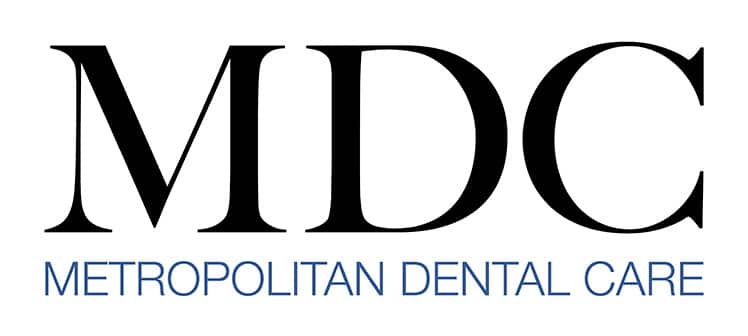Low Magnesium: Teeth Grinding and What You Can Do About It

Do you wake up with a sore jaw, a headache, or even damaged teeth? You may be grinding your teeth, which is referred to as bruxism in dentistry—a condition that affects millions worldwide. Surprisingly, research suggests that inadequate magnesium intake could play a role in this problem.
Magnesium, a vital mineral, is often overlooked when we think about everyday health concerns like teeth grinding. However, understanding its role in the body and ensuring that you have sufficient levels might just be the key to managing this condition.
This article dives into the connection between magnesium and teeth grinding, with actionable tips to help you increase your magnesium intake and protect your oral health.
What Is Teeth Grinding?
Recognizing Bruxism and Its Symptoms
Teeth grinding—clinically known as bruxism—is a condition where you clench, grind, or gnash your teeth, often unconsciously. This can happen while awake (awake bruxism) or during sleep (sleep bruxism), and over time, it can lead to significant oral health issues.
Common symptoms of bruxism include:
- Jaw soreness
- Headaches, especially in the morning
- Worn-down teeth
- Cracked or chipped teeth
- Increased tooth sensitivity
If left unmanaged, teeth grinding not only harms your teeth but can also lead to jaw disorders such as temporomandibular joint (TMJ) problems.
It's essential to identify the underlying causes of teeth grinding—and magnesium deficiency might just be one of them.
The Role of Magnesium in the Body
Magnesium is often called a "master mineral" because it plays a role in over 300 biochemical processes in the body. It is vital for maintaining bone health, muscle function, and a healthy nervous system—all directly or indirectly associated with oral health.
Key Functions of Magnesium Include:
- Bone Strength: Magnesium regulates calcium levels, which are critical for building strong bones and maintaining dental health.
- Muscle Relaxation: This mineral helps muscles relax after contraction, making it essential for avoiding tightness or cramping in the jaw.
- Nervous System Support: Magnesium supports optimal nerve function, preventing overstimulation that could trigger involuntary jaw movement.
When magnesium levels run low, the consequences ripple across the body—and your oral health could be among the first to show signs.
The Link Between Low Magnesium Levels and Teeth Grinding
Studies indicate a strong correlation between magnesium deficiency and increased muscle tension or spasms—two factors that contribute to teeth grinding.
Without sufficient magnesium, muscles, including those in the jaw, can stay tense for prolonged periods, leading to clenching or grinding, particularly during sleep. Additionally, magnesium deficiency can exacerbate stress and anxiety, both of which are recognized triggers of bruxism.
While teeth grinding often has multiple underlying causes (such as stress, misaligned teeth, or sleep disorders), low magnesium levels may worsen the condition or make it harder to manage.
Identifying Low Magnesium Levels
How do you know if your magnesium levels are too low? Magnesium deficiency, known as hypomagnesemia, often presents subtle symptoms that are easy to overlook.
Signs of Magnesium Deficiency:
- Muscle cramps or spasms
- Fatigue and weakness
- Restlessness or trouble sleeping
- Nausea or loss of appetite
- Tingling or numbness
If you suspect a deficiency, it's wise to consult a healthcare professional. A simple blood test can help determine whether your magnesium levels are within a healthy range.
Dietary and Lifestyle Changes to Increase Magnesium Intake
The good news is magnesium deficiency is often reversible with simple dietary and lifestyle changes.
Magnesium-Rich Foods to Incorporate Into Your Diet
- Leafy Greens: Spinach, kale, and Swiss chard
- Nuts and Seeds: Almonds, cashews, peanuts, sunflower seeds
- Whole Grains: Quinoa, brown rice, oats
- Legumes: Black beans, edamame, chickpeas
- Fish: Salmon and mackerel
- Dark Chocolate: Look for varieties with at least 70% cocoa
By incorporating these foods into your meals, you can naturally boost your magnesium levels and support overall health.
Supplementing with Magnesium
Choosing the Right Supplement
Sometimes, dietary adjustments alone may not be enough to correct a magnesium deficiency. That's where supplements step in.
Common forms of magnesium supplements include:
- Magnesium glycinate: Ideal for calming the nervous system and supporting restful sleep.
- Magnesium citrate: Known for high absorption and addressing constipation.
- Magnesium oxide: Frequently used for muscle relaxation.
Be sure to follow the recommended dosage and consult with a healthcare professional before starting a supplement. Taking too much magnesium can lead to side effects like diarrhea or nausea, so balance is key.
Other Strategies to Manage Teeth Grinding
Improving magnesium levels isn’t the only way to manage teeth grinding. Here are additional strategies to complement your efforts:
Stress Management Techniques
Myofunctional Therapy: A physical form of therapy used to aid in the relaxation of the jaw muscles, which we offer at Metropolitan Dental care.
- Meditation and Mindfulness: Help reduce stress and relax your jaw muscles.
- Exercise: Regular physical activity decreases tension and anxiety.
- Breathing Exercises: Focus on slow, deep breathing to ease tension before bedtime.
Use Dental Appliances
Custom-fitted nightguards, prescribed by a dentist, can physically prevent teeth grinding and reduce damage to your teeth.
Sleep Hygiene
Since bruxism often occurs during sleep, improving your sleep quality is crucial. Consider these tips:
- Maintain a consistent bedtime schedule.
- Avoid caffeine and electronics in the hours before bed.
Take Control of Your Oral and Overall Health
Teeth grinding is more than just an oral health concern—it’s a condition that reflects your overall well-being. By understanding the role magnesium plays in your body and taking active steps to maintain healthy magnesium levels, you can protect your teeth, improve muscle function, and promote a peaceful night’s sleep.
If you suspect magnesium deficiency or have persistent bruxism, consult Metropolitan Dental Care to discuss treatment options. Call 212-867-4223 or contact us today to learn more and schedule an appointment.
